
An intruder, armed with two automatic-style weapons and a handgun, entered a Nashville school and killed six people. The three guns — along with four others hidden at home — were obtained legally, despite concerns over the perpetrator’s mental health at the time.
Before the shooting, gun control advocates had spent years trying to get Tennessee lawmakers to tighten gun laws in hopes of preventing something like this from happening here.
Instead, Tennessee’s Republican-dominated legislature and governor’s office have made the state a more gun-friendly place — courting gun manufacturers to move here and making it easier for more people to get guns and carry them more places.
This timeline shows the ways that Tennessee has set out to become one of the most gun-friendly states in the nation over the last decade.

In 2013, the state legislature passed a law often referred to as “guns in trunks.” It allowed gun owners to carry in their cars like an extension of their homes.
“It’s opened Pandora’s box,” says Linda McFadyen-Ketchum, with the Tennessee chapter of Moms Demand Action.
Since the law passed, Tennessee has seen a spike in guns stolen from cars. Often guns are left in plain sight, and are not secured in a lock box or the glove compartment. Data from the FBI shows that several Tennessee cities, nationwide, top the list of most guns stolen from cars. Critics also point to this law as part of the state’s road rage shooting deaths.

Gun manufacturer Beretta announced it would relocate to Tennessee because of the state’s friendly political climate toward guns. The gun maker told WPLN News at the time that it was being driven out of Maryland by laws that aimed to curb mass shootings. Tennessee, on the other hand, spent more than $10 million to woo Beretta, and the city of Gallatin threw in a $2 million property tax break and 100 acres for free.
Beretta’s move was part of a broader migration of gun manufacturers to the South after states passed laws to address gun violence in the wake of the Sandy Hook school shooting.
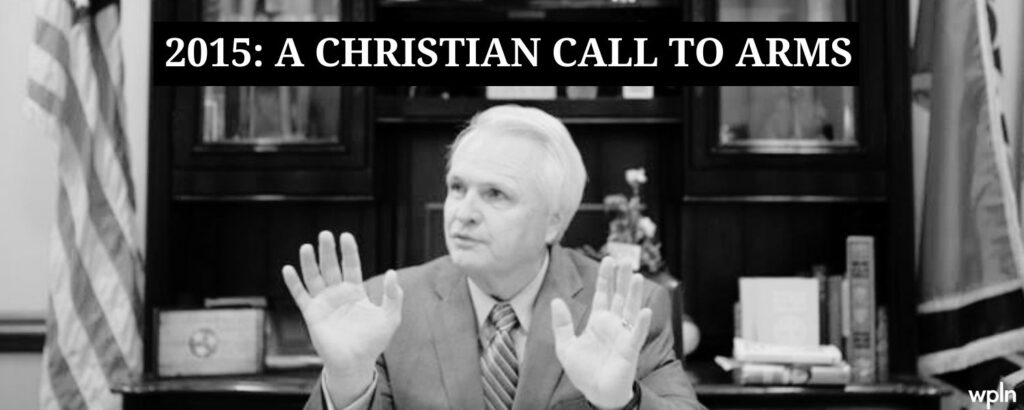
A shooting at an Oregon community college prompted one of Tennessee’s most prominent Republican lawmakers to call for Christians to arm themselves. Then-Senate Speaker Ron Ramsey said that armed enemies are targeting Christians, and they should respond by keeping guns close at hand.
“I have always believed that it is better to have a gun and not need it than to need a gun and not have it,” Ramsey wrote at the time. “Our enemies are armed. We must do likewise.”

A bill clarifying the 2013 guns in trunks law allowed students and faculty at state universities to store guns in their cars on campus. While schools could still prevent students and staff from carrying on campus, the new law made it so they couldn’t punish anyone for storing weapons in their cars.
Proponents of the measure said it could stop a mass shooting on campus, while opponents said it would just make a shooting easier.
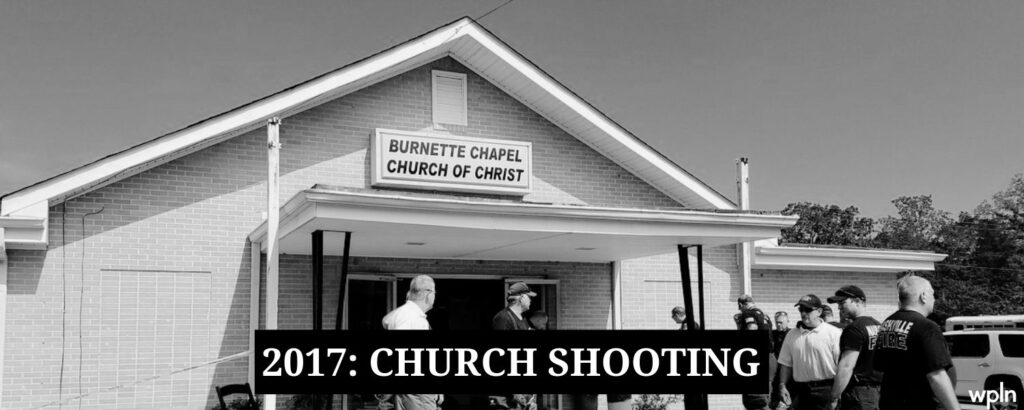
As Sunday worship concluded on Sept. 24, 2017, an armed assailant began firing. One person was killed, and seven were wounded by Emanuel Samson. Police found a note written by Samson, who is Black, indicating he wanted to take the lives of white church-goers as revenge for the 2015 shooting at a South Carolina Black church.
Samson’s father said he asked police to take his son’s guns away out of concern for his mental health, but they did not do it.
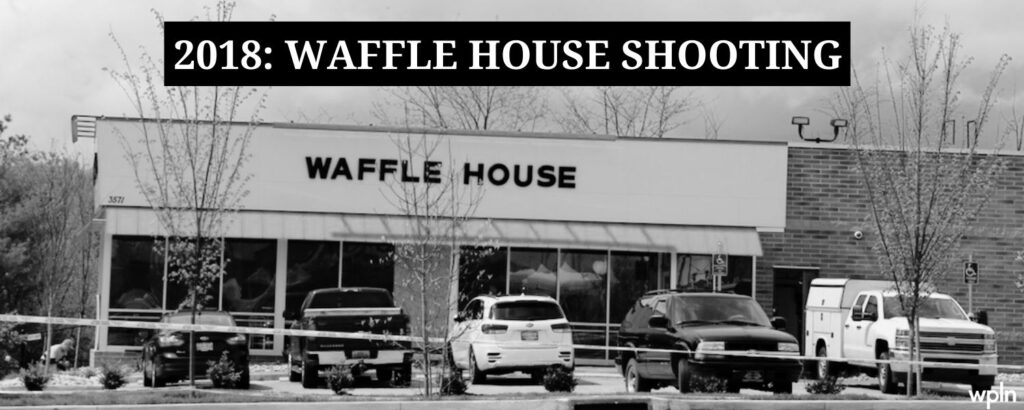
On April 22, 2018, Travis Reinking walked into a Waffle House restaurant in Antioch and opened fire with an AR-15 rifle. Four people were killed, and several others injured, before an unarmed customer wrestled the gun away from Reinking.
It was later revealed that law enforcement in Illinois had ordered Reinking to give up his guns due to prior offenses. The firearms were given to his father, yet one of them was used in the shooting. That transaction is called “third-party dispossession.” If authorities order someone to give up their guns, they can turn them over to a friend or a relative.
After that shooting, lawmakers in Illinois passed a law to close that loophole. Reinking’s father was convicted for giving the gun back to his son. Similar legislation was introduced in Tennessee, but it did not pass. The shooting also prompted an unsuccessful call for restrictions on military-grade assault weapons.
A few days before the Waffle House shooting, Nashville students walked out of class to demand changes to prevent school shootings. Those included: background checks on every gun sale, waiting periods on gun purchases, a ban on bump stocks, a safe storage law for gun-owners and the removal of firearms from domestic abusers.

A report from the Safe Tennessee Project found that gun deaths were on the rise in Tennessee and outpaced the national average in homicides, suicides and firearm mortality. The gun-control advocacy group said the state’s lenient gun laws could be partially to blame.
“Every year as we have been continuing to loosen our already lax gun laws, what we’re seeing is not in any way a decrease in the gun violence,” Beth Joslin Roth told WPLN News. “What we’re actually seeing is an increase.”
Following mass shootings in Dayton, Ohio, and El Paso, Texas, Gov. Bill Lee said that his administration would consider measures to reduce gun violence. No meaningful changes followed.
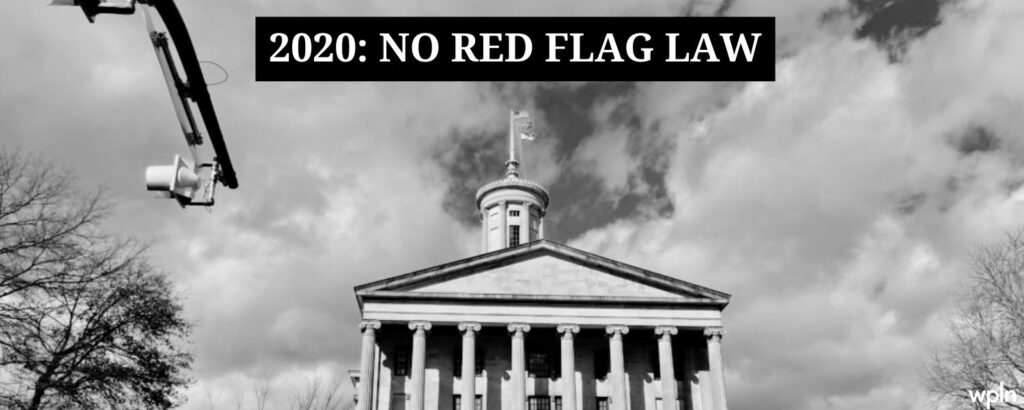
At the state capitol, Democratic lawmakers introduced an extreme risk protection order bill, also known as a “red flag law.” It would have allowed family members, partners or law enforcement to petition the court to temporarily remove someone’s firearms if they are seen as a risk to themselves or others. This attempt failed, largely because of lack of Republican support.
Meanwhile, Gov. Bill Lee welcomed GS Performance, a Glock handgun accessory and parts manufacturer, to Tennessee. The company announced that it would relocate its headquarters, manufacturing and distribution operations from California to Nashville.

Tennessee becomes a permitless carry state. A new law went into effect in 2021 that eliminated the requirement that gun owners get a permit to carry in public. It allowed people to carry without a background check or training.
Tennessee joined a handful of other states that eliminated gun permit requirements — mostly after the Sandy Hook shooting in Newtown, Connecticut. Law enforcement across the state opposed the passage of the law, saying they thought it would make the problems with guns stolen from cars worse. The law went into effect as gun ownership across the state had spiked during the pandemic. More than one out of every 10 residents had permits to carry guns.
Meanwhile, gun manufacturer Smith & Wesson announced that they would relocate their production from Massachusetts to Tennessee. Their main reason? Tennessee’s support of the Second Amendment. In a press release, the company’s president Mark Smith said, “We would like to specifically thank Governor Lee for his decisive contributions and the entire state legislature for their unwavering support of the 2nd Amendment and for creating a welcoming, business friendly environment.” Tennessee offered Smith & Wesson a $9 million economic development grant.
Along with Smith & Wesson, one of the largest suppliers of firearms accessories and weapon upgrades, TROY, announced it would also move to Tennessee. The company supplies firearms to military, law enforcement and civilians.
“While TROY has enjoyed a very successful period of growth in Massachusetts, the changing climate for firearms manufacturers in the state determined the need for our relocation to Tennessee to ensure the continued success of the company,” the company’s CEO said.
In September, a gunman killed one person and injured 14 at a West Tennessee grocery store.
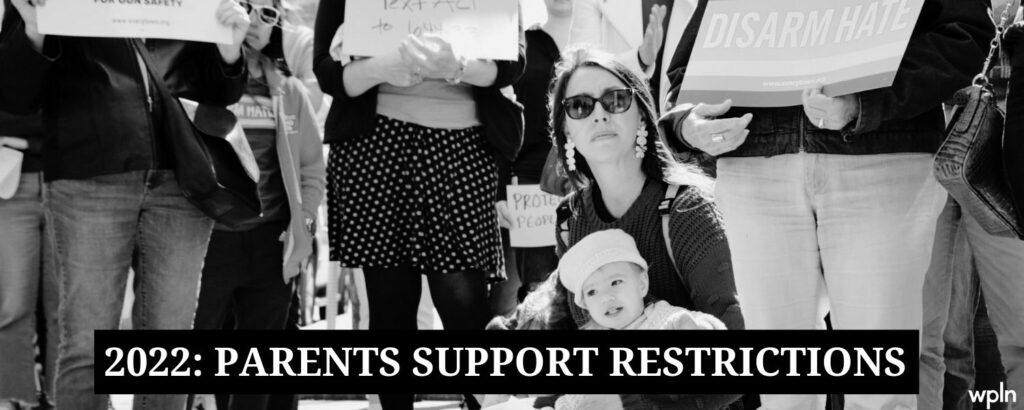
Tennessee parents support more gun restrictions than their representatives are willing to enact, according to a Vanderbilt Center for Child Health Policy poll in 2022. The poll was of more than 1,000 parents. The majority of them supported gun control measures like background checks, red flag laws, banning guns on school property and an age limit of 21 years for purchasing a gun. And half support restricting the sale of high-capacity magazines. Only about 35% thought that schools would be safer if teachers were armed.
The shooting at Robb Elementary School in Uvalde, Texas, prompted Gov. Bill Lee to sign an executive order to “harden” schools. However, the order did not include any gun regulations. In Nashville, police responded by placing more officers in schools, bringing police presence to the “highest levels ever” in the city’s public schools.

In the months leading up to the shooting at the Covenant School, Tennessee’s conservative lawmakers continued to push for gun restrictions to be peeled back. Some lawmakers and the state’s attorney general want the permitless carry age to drop from 21 to 18. A federal judge agreed. Republican Rep. Jay Reedy filed a House bill that would allow local directors of schools to essentially deputize certain employees, like teachers or other personnel, to carry a concealed handgun on school grounds.
The week of the shooting, lawmakers decided to postpone all gun-related bills to the following week out. That move drew mixed reactions.
“They offered thoughts and prayers,” Leeann Hewlett of Moms Demand Action Tennessee said outside the state capitol the day after the shooting. “And while we do appreciate those thoughts and prayers, we need them to take action because they are the only ones who can change the laws and keep us safe.”
Despite protests at the state capitol calling for gun control, Republican lawmakers have focused on “school hardening” measures like secure doors, security cameras and emergency planning.

